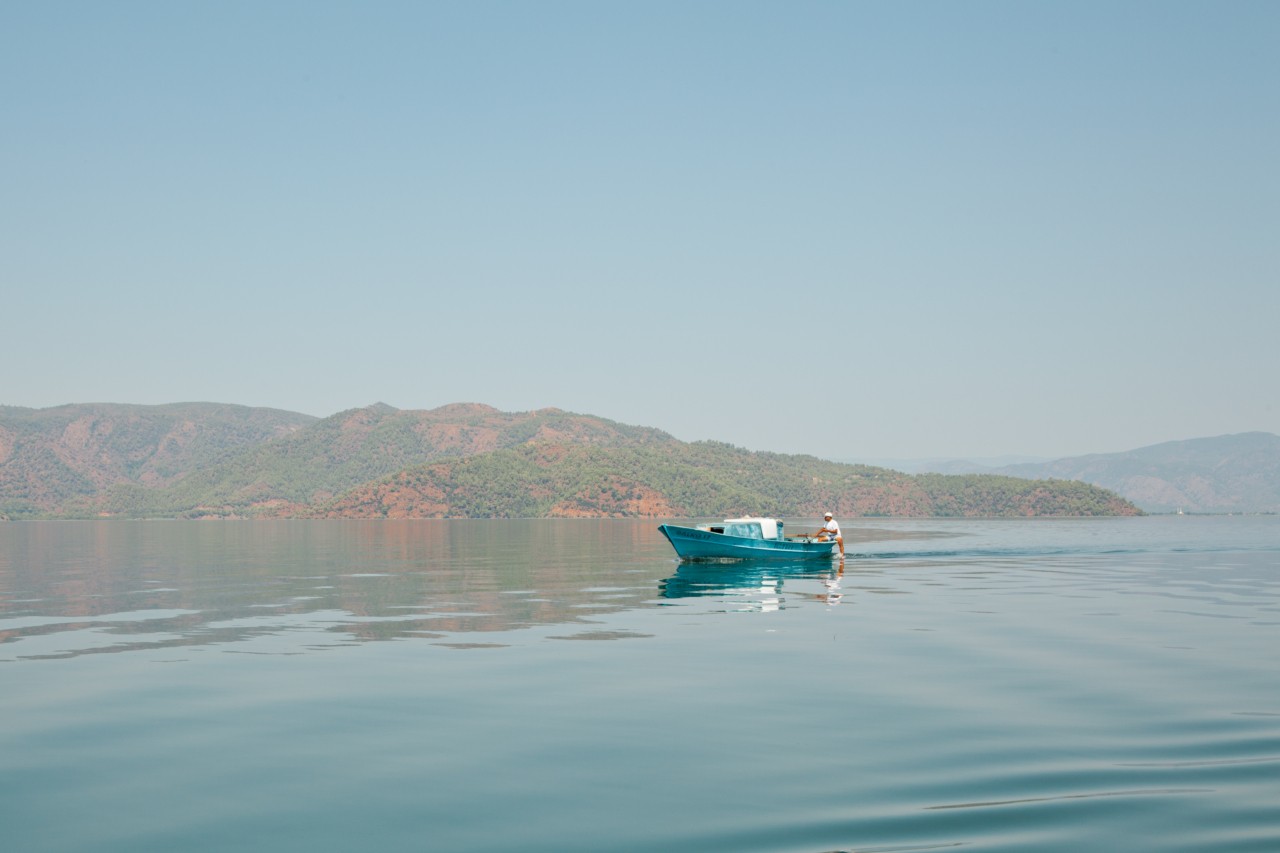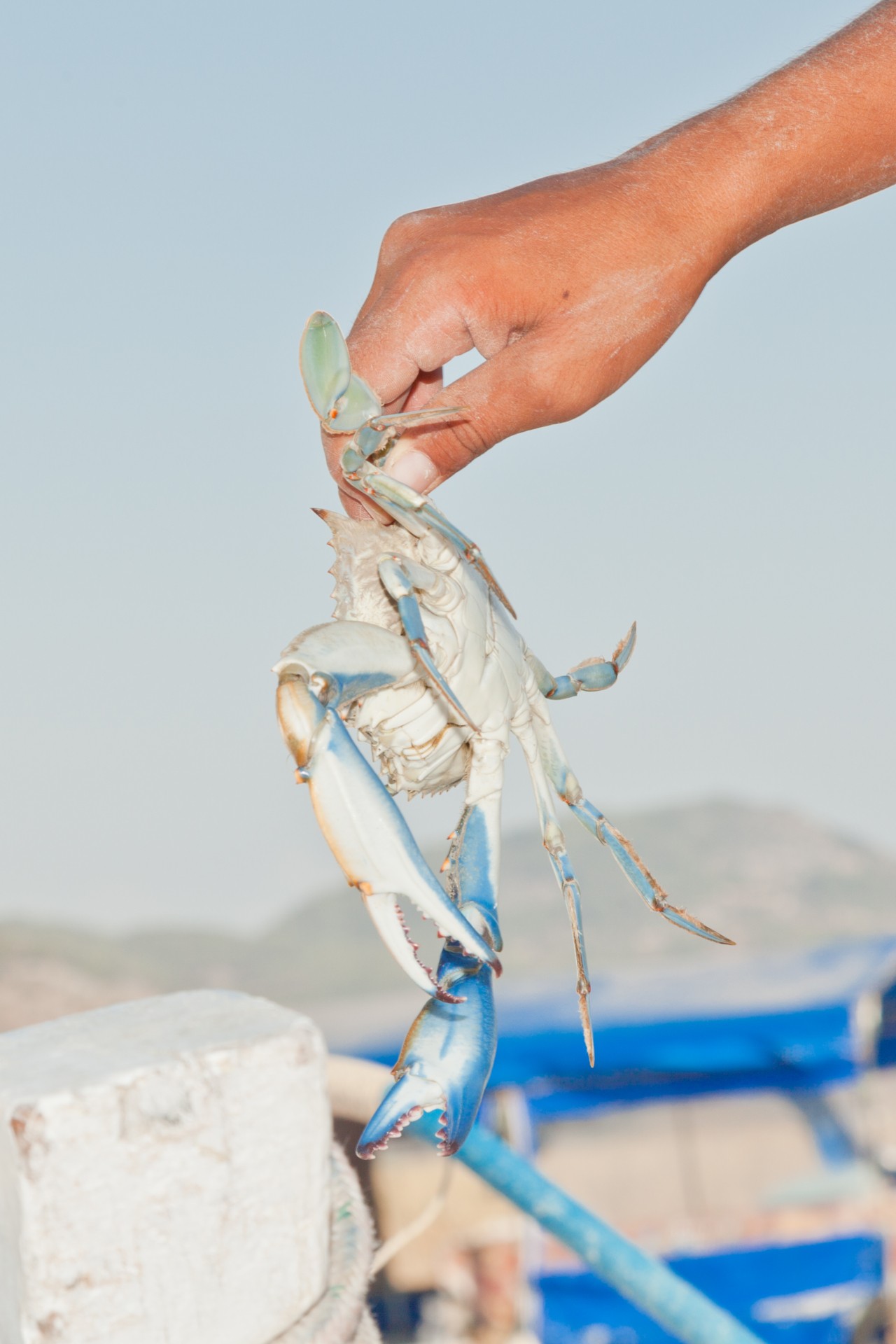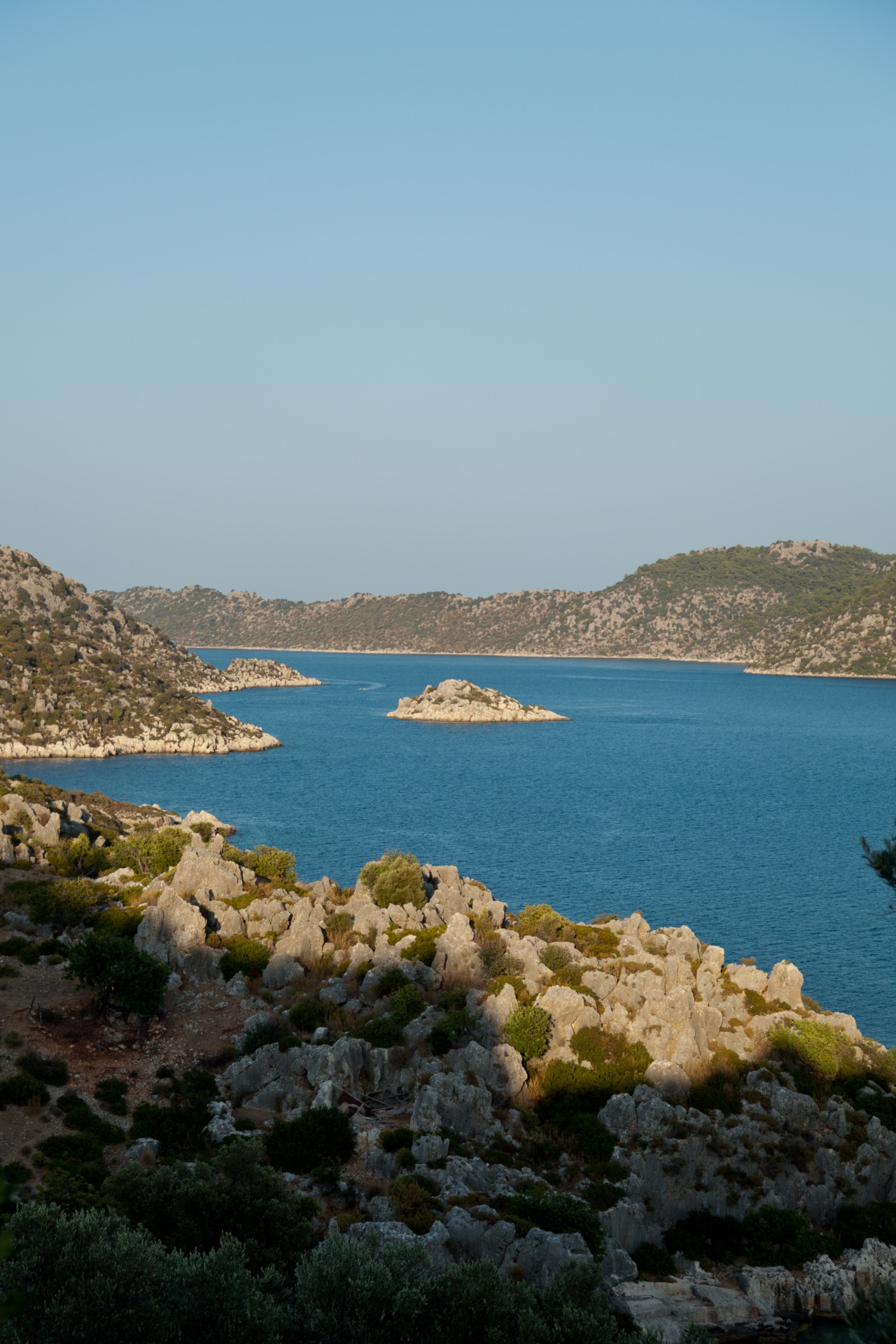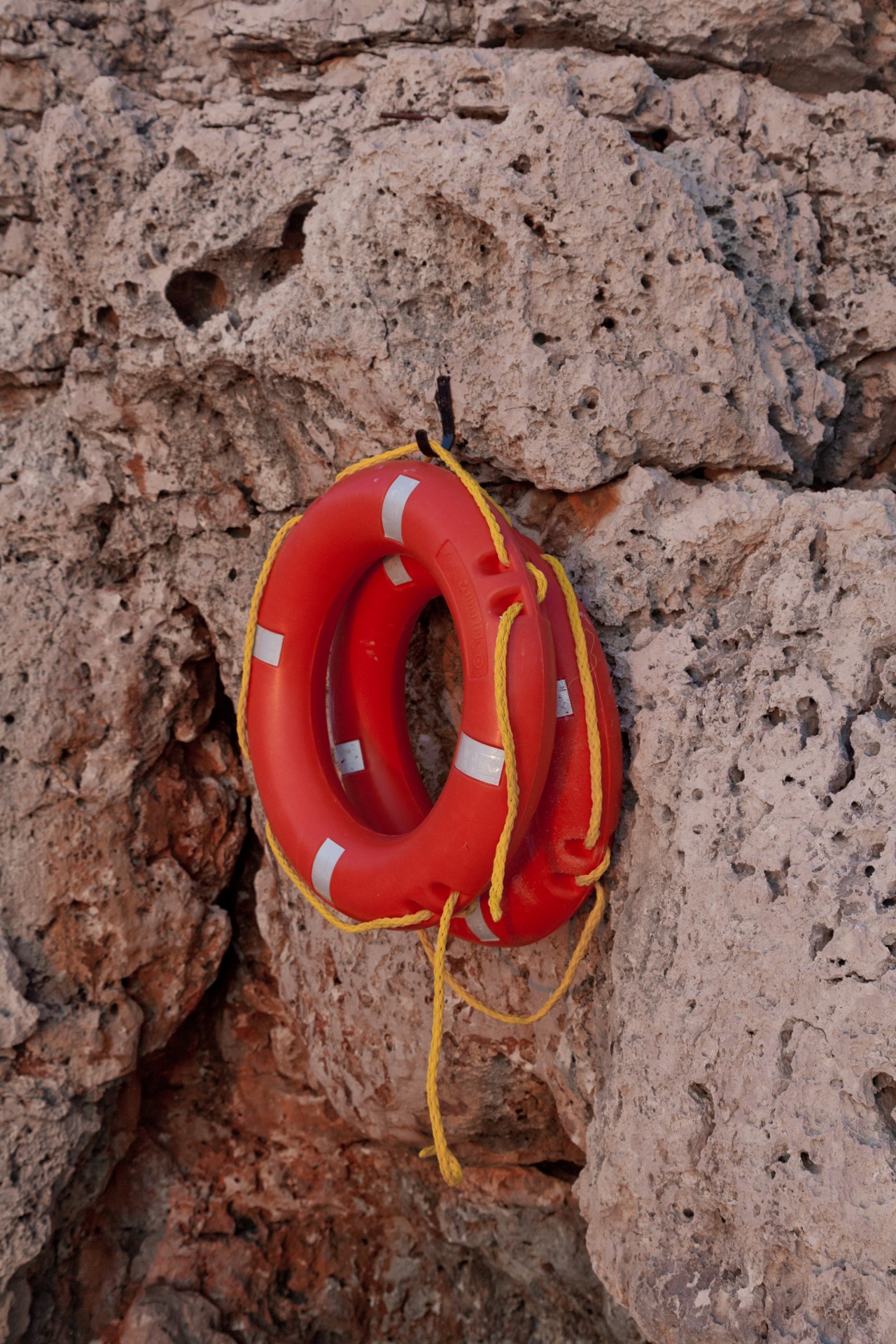

WORDS BY NIC RODWAY
photographs by Fred Lahache
Early morning sunlight trickles across the waters of Gökova in southern Türkiye as marine ranger Iskender Demirel starts up his patrol boat. He navigates the coastline, passing steep hillsides where conifers and spruce spill down to the water’s edge. Eventually, he arrives at a small inlet known locally as Boncuk Bay. Save for a few flitting fish, you can see 30 feet straight down to the sandy bottom.
This tranquil, sparsely populated place, located roughly 650 kilometers south of Istanbul, is as far away from the bustle of the nation’s most famous city as you can imagine. But beneath the placid surface lies a concerning environmental history—one where overfishing is depleting marine life and invasive species are displacing the few that manage to survive.
Nearly 73% of all Turkish fish species live in Gökova. It is home to wide beds of the endemic seagrass Posidonia oceanica, an ancient cultural touchstone and a critical carbon sink. It’s vital habitat for the endangered Mediterranean monk seal (Monachus monachus) and Sandbar shark (Carcharhinus plumbeus). Yet, the ecosystem has been ravaged by industrial fishing, pollution, climate change, and invasive species. That’s why Demirel is on the water—to protect it.
Demirel is a ranger for the environmental nonprofit, Akdeniz Koruma Derneği (AKD), known in English as the Mediterranean Conservation Society. The nonprofit, founded in 2012, has established the area he is patrolling, along with nearly 500 kilometers of Turkish coastline, as a marine protected area. For AKD, however, protection doesn’t mean barring local fishing communities from the water. Rather, it means engaging and employing them as patrol rangers—as active agents in protecting their own ecosystem.

The ecosystem has been ravaged by industrial fishing, pollution, climate change, and invasive species.
By seeing humans as part of the natural mix rather than scourges to be excluded, AKD’s conservation approach pursues healthy ecosystems and supports the communities that rely on them.
Gökova, Türkiye’s first community-managed MPA, has seen remarkable success. Since the community-based patrol launched in 2013, Gökova has seen an exponential bounceback in endangered fish numbers. Invasive species are receding, and endangered monk seals and sandbar sharks are returning. It’s been good for people, too—income in the local fishery increased 400% between 2010 and 2017.
Gökova has been recognized by the United Nations (UN) as one of the world’s best marine protected areas. The framework is now being replicated across Türkiye. And earlier this year, AKD’s founder and president Zafer Kizilkaya was awarded the Goldman Prize, otherwise known as the “Green Nobel Prize.”
The philosophy of empowering stakeholder communities as active participants in environmental protection is one to admire and emulate—Demeril is a case in point. He was a fisherman before becoming AKD’s first marine ranger.
“When I was fishing, I became convinced over time that the marine resources were overexploited,” he explained. “When I first started out with AKD, I had some resistance from the fishing community, and even today there is still conflict at times with people who undertake illegal fishing. However, I see the work as more important for the future of the coast.”

Kizilkaya wasn’t a fisher, but an engineer and underwater photographer. For nearly a decade prior to founding AKD, he worked in the Indo-Pacific region on tropical marine conservation projects and contributed underwater photography for media outlets such as National Geographic.
Returning to Türkiye, he was alarmed to see how depleted the ecosystems of the Turquoise Coast had become, with the Mediterranean one of the most overfished waterways in the world. In 2022, the UN recognized that 73% of commercial species were overfished and fishing pressure is double what is considered sustainable. Fish populations dropped by a third in the last five decades.
“In the past 50 years, industrial-scale fishing fleets have been exploiting the coastline and threatening the livelihoods of coastal communities,” Kizilkaya said. “We knew we had to show local communities that marine-protected areas would improve their livelihoods, as well as convince government bodies of the necessity and urgency for more MPAs.”
When the organization started in 2012, it had little funding—a dedicated office space was out of reach until 2019. However, the success of AKD’s work means that it is now able to operate three offices, in the towns of Izmir, Akyaka and Göcek, with over 30 staff working in areas ranging from operations to education.
Funda Kök, who joined AKD as Conservation Manager and General Director in 2019, credits that growth and success to local partners, including small fishing cooperatives. And that collaboration requires preserving business and culture alongside biodiversity.
“Our approach is holistic,” Kök explained. “We sit down with those communities who are affected by the many issues facing the Mediterranean, and we help to produce solutions to the problems and implement them.”
“Traditional, small-scale fishers have been impacted by challenges including overexploitation of fish stocks and climate change.” she added. “The knowledge of local fishers is extremely important. Our aim is to help preserve this knowledge and culture so that we can all benefit from it in the future.”

“The knowledge of local fishers is extremely important. Our aim is to help preserve this knowledge and culture so that we can all benefit from it in the future.”
Former fishers like Demirel have proven to be invaluable in protecting the coastline. According to AKD’s Biannual Review in 2020-21, they reported 338 illegal fishing activities that fiscal year—an average of more than six a week.
The organization’s dedication to human livelihood is evident across its operations. Take a look at AKD’s fight against invasive species, for example. Many invasive species, such as the lionfish (Pterois miles), have invaded Türkiye’s coast since the opening of the Suez Canal in 1869. Lionfish are voracious predators, capable of ravaging native wildlife populations. Concerningly, their ranges can burgeon, especially if temperatures rise.
In response, AKD has worked with small-scale fishers to target these very fish to sell to local markets.
“The main objective of this enterprise is to increase the value and consumption of edible, invasive marine species,” Kök explained. “By doing this, we are able to help restore the ecosystem by creating a pressure on these species and improve the economic situation of small-scale fisheries.”
AKD is also partnering with local restaurants and celebrity chefs to promote edible invasive species, organizing tasting events, and releasing promotional films.
Yet again, to preserve biodiversity, AKD turns to the economy.
In the last 10 years, according to the UN, exploitation of fish stocks in the Mediterranean has “dropped significantly.” Conservation projects like the Gökova MPA have made huge strides in recovering depleted marine ecosystems. But clearly, there’s still a long way to go.
As environmentalists chart a path forward, AKD has modeled how conservation doesn’t necessarily mean exclusion; it doesn’t require barring off communities who have sustainably used a resource for generations, who rely on it for their livelihoods. Rather than working against local consumers, AKD showed that successful conservation can work with them—to ensure a healthy ecosystem for humans and nonhumans alike.
Winning the “Green Nobel Prize” for Community-Based Conservation


